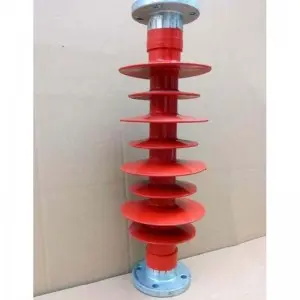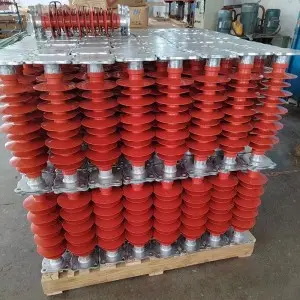Electricity is an integral part of our lives, powering everything from our homes to the technology we use every day. Insulators are an important part of the power system, in order to ensure the safety and efficiency of electricity. This article explores insulator product descriptions, uses, and operating environments.
Product Description
Insulators are materials specifically designed for use in power systems to isolate conductive parts and prevent the flow of electricity. The main function of an insulator is to keep current in wires, cables, and other components of a circuit and prevent it from flowing to other conductive materials or ground. Insulators come in all shapes and sizes, from air gaps between conductors to ceramic or plastic materials.
One of the key aspects of an insulator's design is its ability to withstand high voltages and electrical stress without conducting electricity. The manufacturing process takes into account the material's electrical properties, mechanical strength, and resistance to weather and other environmental factors.
usage
Insulators are an essential part of power systems, including transmission lines, distribution lines and substations. Transmission lines transmit electricity over long distances, using high-voltage lines to reduce energy loss. Insulators are used to support these lines and prevent electrical energy from leaking to ground.
Distribution lines carry electricity from substations to homes, businesses, and other buildings. Insulators are used to support the conductors and keep them away from each other and away from the ground.
A substation is where electricity is converted from high voltage to low voltage for use in homes and businesses. Insulators are used to support electrical equipment and provide isolation between conductors.
use environment
Insulators operate in harsh environments that can affect their performance and service life. Factors such as temperature changes, humidity and exposure to UV radiation can cause insulation performance to degrade over time.
High temperatures can cause insulators to soften, lose strength and deform. Continued exposure to moisture can cause corrosion, which degrades the performance of the insulator.
Insulators are designed with these environmental considerations in mind. Different materials are used to produce insulators suitable for specific environments. For example, ceramics are used for high pressures and harsh conditions, while plastics are used for low pressures.
In summary
In conclusion, it is clear that insulators are an essential part of power systems, ensuring the efficient and safe transmission and use of electricity. Insulators come in many shapes, sizes and materials and are designed with electrical properties, mechanical strength and environmental considerations in mind. Their importance in transmission lines, distribution lines and substations cannot be overemphasized as they ensure a stable and consistent power supply.


Post time: May-26-2023
